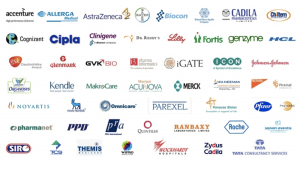In my experience, one of the more common responses after asking current graduate students what they plan on doing after graduation, is “find a job in industry.” While the transition from academia to industry can be challenging, a recent article by Angela Hopp and Rajendrani Mukhopadyay aims to outline some pointers for those that might be interested in a career in industry. The article is based on an interview with Kenneth I. Maynard, a member of the National Institutes of Health Common Fund’s External Scientific Panel for the Broadening Experiences in Scientific Training program. This article went over three main questions: When it comes to finding a job in industry, how important are internships? Should a candidate wait until he/she publishes original work before applying to industry? Is it worth doing a postdoctoral fellowship before applying to industry positions? Hopp and Mukhopadyay state that while internships are not crucial to finding an industry job, they can still provide an advantage. An internship may serve to expose the individual to the environment that s/he will be applying for in the future by experiencing every day tasks, time commitment, team structure, etc., and can aid in determining if it is the right career choice. One important point from the article is that internships can provide real-world experience such as emphasis on process, timelines, and working in teams, which are experiences less common when working in academia. There is also the possibility of an internship turning into a full-time position. Something that everyone hopes for, right? If an industry internship is not feasible for you at the moment, I recently learned that Phase 2 of the iJOBS program also allows trainees to shadow professionals in their area of interest. While you must apply to be part of Phase 2, this would be a great opportunity to feel out what it is like working in industry. In addition, the many networking opportunities that might open more doors are another plus. Publications can also give the applicant a competitive advantage. Publications show that the candidate is an expert in a specific area, and can produce professionally written documents. However, publications are not always necessary for some entry-level bench positions. Hopp and Mukhopadyay note that there are instances in which publishing work may not have been possible, which can be explained to the hiring manager. To me, someone who will one day be applying for an industry position, publications seem to carry a lot of weight in making for a competitive versus an average applicant. In science, you often hear the quote “publish or perish” being thrown around, which contributes to this idea. Being in academia for several years now, I’ve noticed how important publications are, not only in applying to jobs, but securing grants, publishing future papers, and staying relevant in the field. Finally, the authors state that if you hope to enter the pharmaceutical industry at the level of a group leader or a principal scientist, it is advantageous to have postdoctoral experience, or to have achieved the position of an assistant professor. However, this is not required if you are entering industry at a lower level and want to remain at the bench. With the competitiveness of the application environment, it could be beneficial to try to find a postdoctoral fellowship in industry. This, like the internship, might lead to a permanent position or further opportunities. Overall I found this article to be insightful in the pointers they gave for someone who might one day be interested in industry. In my opinion, the biggest take away from Hopp and Mukhopadyay is the emphasis on completing an internship. If your PI allows for it, try to do an internship during graduate school. This might open doors into industry years before one even thought possible. Whether or not you want to go into industry, it is never too early to begin thinking about what you want to do after graduate school. 
iJOBS Blog